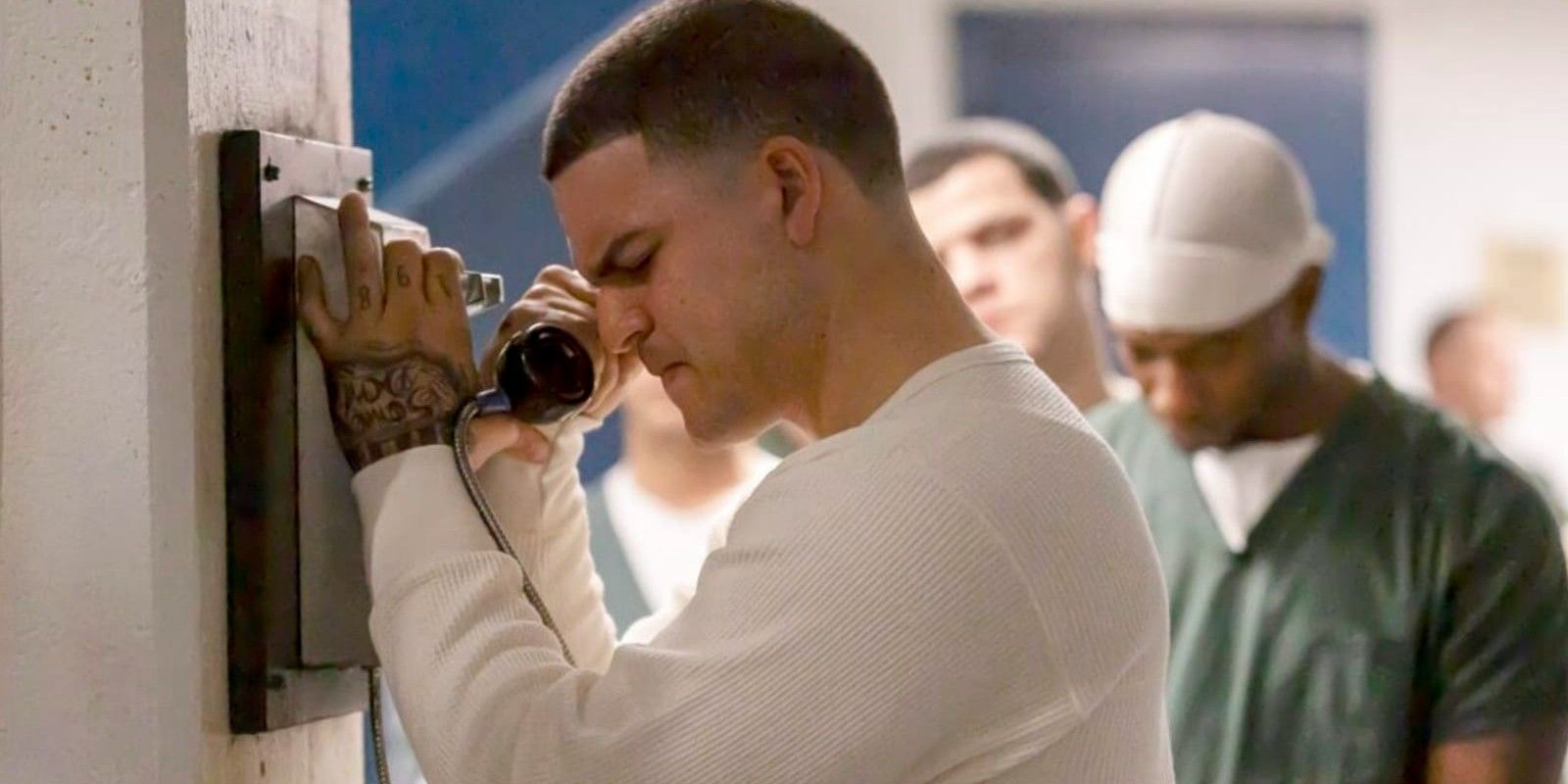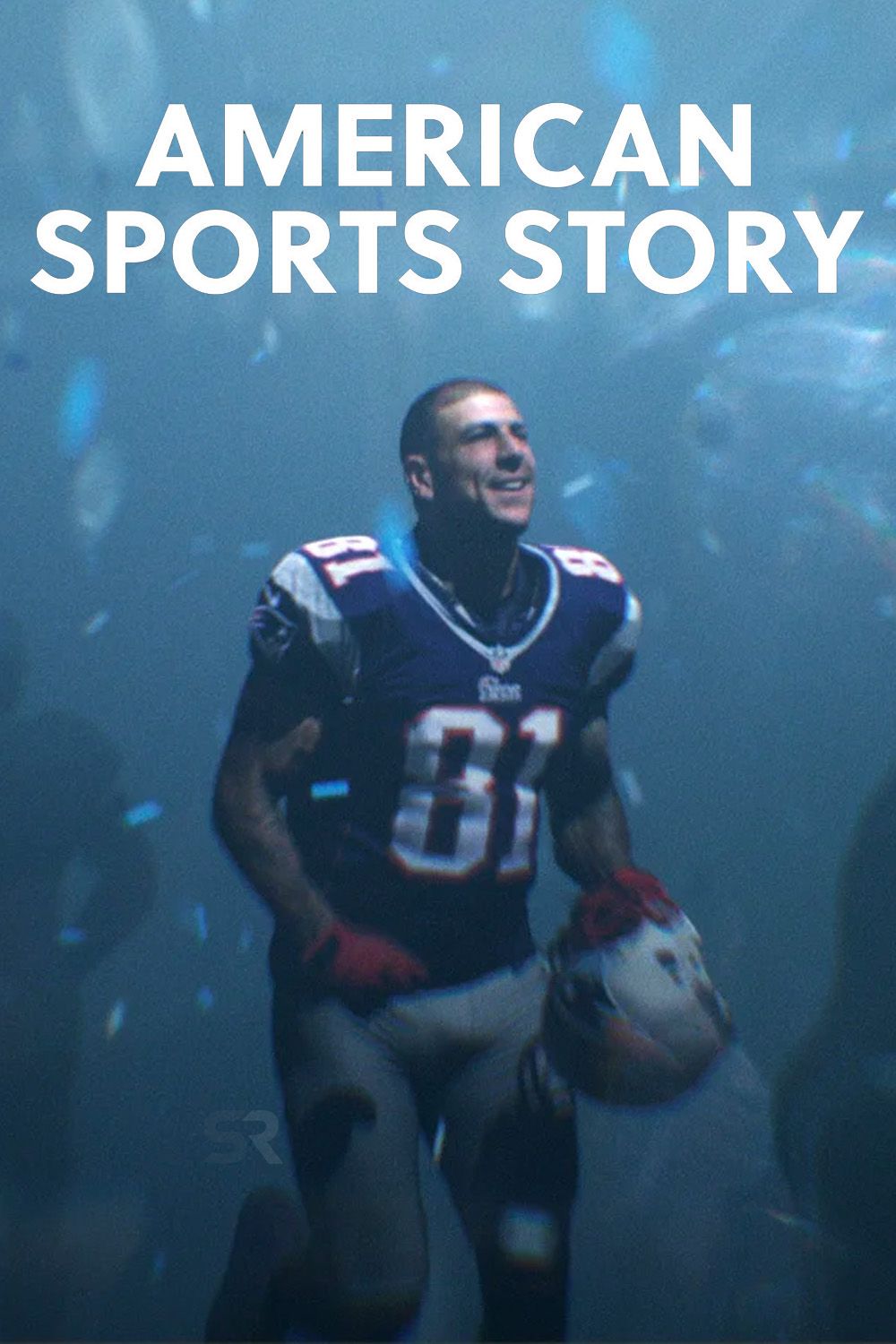American Sports Story Ending & Aaron Hernandez’s CTE Reveal Explained By EP

An American Sports Story executive producer breaks down the finale’s tragic end for Aaron Hernandez, exploring the impact of his CTE diagnosis and how it influenced his life and crimes. The FX series, planned to explore true stories of sports figures, dedicated its debut season to former NFL star Hernandez, who was convicted of murder before his death by suicide in prison. The show examined Hernandez’s journey from a promising athlete to a convicted felon, drawing attention to the darker aspects of football culture and the physical and psychological toll the game can take on its players.
In a recent interview with The Wrap, executive producer Stu Zicherman discussed how he approached wrapping up Hernandez’s story to reflect both the player’s sorrow and the ongoing dangers that come with football. He explained that by delving into Hernandez’s severe brain trauma, the show aims to evoke empathy without absolving him of his crimes, while also addressing the broader issues that remain unresolved in American sports. Read his comments below:
I didn’t want to end it in prison with Aaron. It felt too sad. We wanted to find a way to show this idea that the game continues to go on and that people like Aaron — and there are other players in the history of the game — are just forgotten. What happens is forgotten… I want people to take the tragedy of it all away. He wasn’t born a killer. Without forgiving him for what he’s done, it’s a tragedy.
The brain injury stuff played out in such an interesting way in real life. It really became a debate, whereas our entire show there wasn’t much debate about whether Aaron had killed these men or what he’d done or who he was.
The exploration of Hernandez’s CTE diagnosis also brings to light the alarming truth about brain damage in football, an issue that is still passionately contested to this day. Originally, Zicherman and his team planned to use actors to portray the voices in the final montage. However, they decided that using real voices from well-known sports commentators would have a bigger impact.
The reason we decided to bring in real voices is because, in the sports world, those are really famous voices. Those are the pundits.
Those are the chorus of people who are constantly commenting.
This remains today an enormous debate inside of football: What are the dangers of playing? We thought it added more resonance if we used the real people.
Zicherman added that his 12-year-old son plays football and has dreams of playing the game professionally. “It’s become America’s pastime,” he said. “And the game has never been bigger.” But, despite knowing the risks, Zicherman believes football is ingrained in American culture and will continue to thrive.
It doesn’t matter. We are addicted to this game. We’re going to keep watching it no matter what. So we just wanted to put a stamp on that.
What This Means For American Sports Story
A Humane Approach To Tragedy
The finale goes beyond merely recounting Hernandez’s tragic story. By focusing on the neurological and psychological toll that football can have on its players, the show sends a strong message about the dangers associated with the beloved sport’s culture. Hernandez’s diagnosis of chronic traumatic encephalopathy highlights an issue that the NFL and other sports leagues continue to struggle with—the long-term effects of repeated head trauma. The inclusion of real voices from sports commentators in the final montage underscores the scale of the issue, demonstrating that the conversation is far from over and continues to evolve in the public sphere.
By ending on this note, American Sports Story ensures that Hernandez’s story will linger in the audience’s mind, serving as a reminder of the hidden costs of America’s favorite sport.
Hernandez’s story is not just a singular tragedy but a larger statement about the risks athletes face and the unanswered questions about player safety that leagues must address. For viewers, Hernandez’s life story—from an acclaimed NFL player to a convicted criminal suffering from brain trauma—is a tragic example of what can happen when mental and physical health issues are overlooked or misunderstood. By ending on this note, American Sports Story ensures that Hernandez’s story will linger in the audience’s mind, serving as a reminder of the hidden costs of America’s favorite sport.
Our Take On The American Sports Story Finale
The ending of American Sports Story holds up a mirror to America’s complex, often contradictory relationship with football. Despite increasing awareness of CTE and the sport’s potential dangers, football remains deeply ingrained in American culture, and many fans are unlikely to turn away from the game. The show successfully portrayed the duality of football as a beloved sport that inspires people, yet it carries real dangers that both fans and players need to acknowledge.
By not shying away from the difficult truths, Zicherman and his team created a show that prompts real conversations about sports, safety, and accountability. Hernandez’s story, while painful, is a necessary reminder in the ongoing conversation about the price athletes must pay to achieve greatness. American Sports Story serves as both a tribute to Hernandez’s humanity and a cautionary tale for sports organizations to address players’ health before more athletes fall victim to similar tragic fates.
Source: The Wrap
Related
Here’s how Cadillac can become a true American F1 dream…
Credit: Instagram Cadillac (@cadillac) Cadillac F1 stands to have a huge chance to be an American team by and for Americans, something that Formula 1 so badly
Stephen A. Smith Contract Extension – Work Less, Earn More,…
Stephen A. Smith has just landed the contract of his life with ESPN!
American Athletic Conference becomes first league to set ‘minimum standard’…
The American Athletic Conference approved an initiative on Friday to establish a minimum standard of benefits that schools are required to share with athletes i
American Sports Entertainment Company Announces Strategic Partnership with Seidler Equity…
CHANDLER, Ariz., March 7, 2025 /PRNewswire/ -- American Sports Entertainment Company ("ASEC"),












